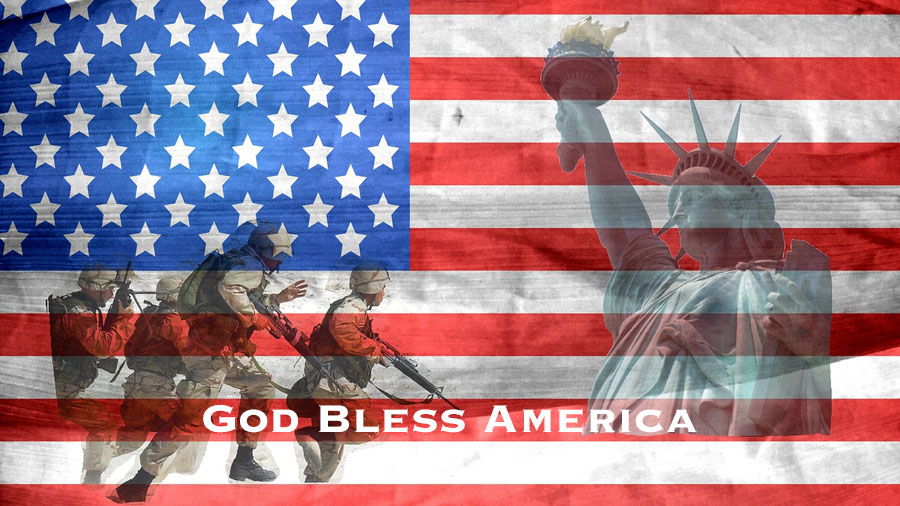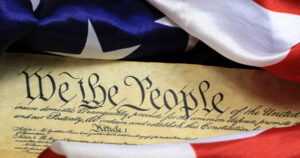 According to the U.S. Supreme Court website: "As the final arbiter of the law, the Court is charged with ensuring the American people the promise of equal justice under law and, thereby, also functions as guardian and interpreter of the Constitution."
According to the U.S. Supreme Court website: "As the final arbiter of the law, the Court is charged with ensuring the American people the promise of equal justice under law and, thereby, also functions as guardian and interpreter of the Constitution."
Guardian. Yes.
Interpreter?
Actually, nowhere in our U.S. Constitution does it say that the courts interpret it.
But, they do. Or, try to.
And, it is allowed.
In terms of interpreting or working out what something means, at least one justice of the SCOTUS, Antonin Scalia, who called himself an "originalist," said, "It's what did the words mean to the people who ratified the Bill of Rights or who ratified the Constitution" He added, "As opposed to what people today would like."
And, though courts and judges should NOT be political, especially when they are "interpreting," they definitely are, twisting meanings and words into what is not written, to fit an agenda.
Here are a couple of "interpretations" from liberal district courts and judges regarding our Second Amendment.
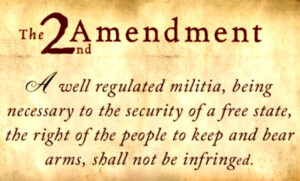 The U.S. Court of Appeals for the Third Circuit decided that the New Jersey ban on “high capacity” magazines “does not unconstitutionally burden the Second Amendment’s right to self-defense in the home.”
The U.S. Court of Appeals for the Third Circuit decided that the New Jersey ban on “high capacity” magazines “does not unconstitutionally burden the Second Amendment’s right to self-defense in the home.”
U.S. District Judge William Young ruled to ban military-style and large capacity weapons in Massachusetts because they are “designed and intended to be particularly suitable for combat rather than sporting applications.” He then wrote that those weapons fall outside of the “scope of the personal right to ‘bear Arms’ under the Second Amendment.”
If, and when, a judge decides to "interpret" anything from our U.S. Constitution, especially one dealing with guaranteed rights of Citizens, would it not be best to go directly to those who were there framing the words, who were involved in the discussions and the whole approval and ratification process?
Thus, to make it easy for any and all judges, and Americans who are interested, here are statements by our Founding Fathers concerning what it is they meant by those words in the Second Amendment.
George Mason (Father of the Bill of Rights, co-author of 2A): "The People have a right to keep and bear Arms; that a well regulated Militia, composed of the Body of the People, trained to arms, is the proper, natural, and safe Defence of a free state."
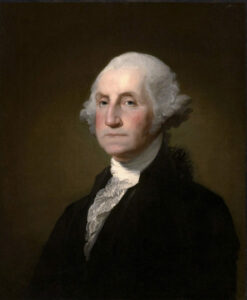 George Washington (General of the Militia and our first president): "...the Citizens of America (with a few legal and official exceptions) from 18 to 50 Years of Age should be borne on the Militia Rolls, provided with uniform Arms, and so far accustomed to the use of them, that the Total strength of the Country might be called forth at Short Notice on any very interesting Emergency."
George Washington (General of the Militia and our first president): "...the Citizens of America (with a few legal and official exceptions) from 18 to 50 Years of Age should be borne on the Militia Rolls, provided with uniform Arms, and so far accustomed to the use of them, that the Total strength of the Country might be called forth at Short Notice on any very interesting Emergency."
John Adams (first vice president and second president): "Here every private person is authorized to arm himself, and on the strength of this authority, I do not deny the inhabitants had a right to arm themselves at that time, for their defense, not for offence."
Thomas Jefferson (principal author of the Declaration of Independence and third president): "No freeman shall ever be debarred the use of arms."
"For a people who are free, and who mean to remain so, a well organized and armed militia is their best security."
James Madison (Father of the U.S. Constitution and fourth president): “The Constitution preserves the advantage of being armed which Americans possess over the people of almost every other nation where the governments are afraid to trust the people with arms.”
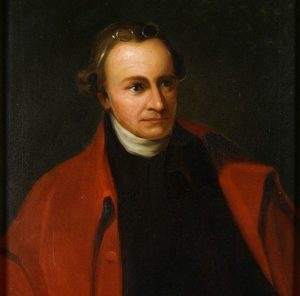 Patrick Henry (attorney, orator, proponent of a Bill of Rights): “Are we at last brought to such an humiliating and debasing degradation, that we cannot be trusted with arms for our defense? Where is the difference between having our arms in possession and under our direction, and having them under the management of Congress? If our defense be the real object of having those arms, in whose hands can they be trusted with more propriety or equal safety to us, as in our own hands?”
Patrick Henry (attorney, orator, proponent of a Bill of Rights): “Are we at last brought to such an humiliating and debasing degradation, that we cannot be trusted with arms for our defense? Where is the difference between having our arms in possession and under our direction, and having them under the management of Congress? If our defense be the real object of having those arms, in whose hands can they be trusted with more propriety or equal safety to us, as in our own hands?”
Tench Coxe (Pennsylvania militia and Constitutional Convention delegate): "Congress have no power to disarm the militia. Their swords, and every other terrible implement of the soldier, are the birth-right of an American... The unlimited power of the sword is not in the hands of either the federal or state governments, but, where I trust in God it will ever remain, in the hands of the people."
Samuel Adams (helped draft the Continental Association and the Massachusetts Constitution): “The said Constitution shall never be construed... to prevent the people of the United States who are peaceable citizens from keeping their own arms.”
Melancton Smith (New York delegate to the Continental Congress and proponent of a Bill of Rights): "A militia when properly formed are in fact the people themselves...and include all men capable of bearing arms...To preserve liberty it is essential that the whole body of the people always posses arms, and be taught alike, especially when young, how to use them..."
Thomas Paine (political activist and revolutionary, author of Common Sense): "Arms like laws discourage and keep the invader and the plunderer in awe, and preserve order in the world as well as property. The balance of power is the scale of peace."
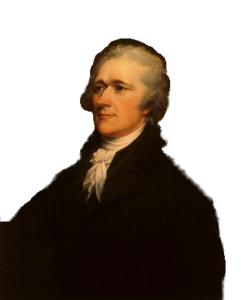 Alexander Hamilton (co-founder of the Federalist Party and first Secretary of the Treasury): “The best we can hope for concerning the people at large is that they be properly armed.”
Alexander Hamilton (co-founder of the Federalist Party and first Secretary of the Treasury): “The best we can hope for concerning the people at large is that they be properly armed.”
“If the representatives of the people betray their constituents, there is then no recourse left but in the exertion of that original right of self-defense which is paramount to all positive forms of government.”
Fisher Ames (Federalist member of the U.S. House of Representatives and backer of the Bill of Rights): "The rights of conscience, of bearing arms, of changing the government, are declared to be inherent in the people."
Richard Henry Lee (signer of the Declaration of Independence and President of the Confederation Congress): “No free government was ever founded, or ever preserved its liberty, without uniting the characters of the citizen and soldier in those destined for the defense of the state...such are well-regulated militia, composed of the freeholders, citizen and husbandman, who take up arms to preserve their property, as individuals, and their rights as freemen.”
As can be seen from the words of those who were there, arms were meant to be in the hands of the people, always. The same arms as the military. And, the primary reason is for the "defense of a free state." NOT for sporting activities, or hunting, or only for home self-defense.
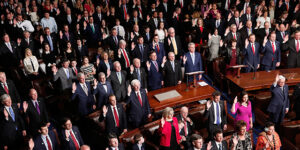 Thus, any court or judge who writes an opinion restricting anything to do with any kind of arms that Citizens of these United States may have is at odds with our U.S. Constitution and should not be allowed to continue on the bench.
Thus, any court or judge who writes an opinion restricting anything to do with any kind of arms that Citizens of these United States may have is at odds with our U.S. Constitution and should not be allowed to continue on the bench.
Likewise, any elected officials who have taken an oath to protect and support our U.S, Constitution and who advocates or votes to limit any arms from We the People should be expelled from their office for violating their Oath of Office.
In order to ensure our Freedom, our Liberty, our Rights, we must remain true to our U.S. Constitution.
There are many ways to learn and/or teach the basics. You can start by watching the award-winning In Search of Liberty Constitution movie. For more in-depth study you can enroll in a one-day Constitution Boot Camp from Building Blocks for Liberty or consider joining KrisAnne Hall's Liberty First University.
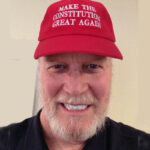
by Scott D. Welch, Patriot
Direct descendant of 8 Americans who fought in the Revolutionary War
Cousin of Patrick Henry
